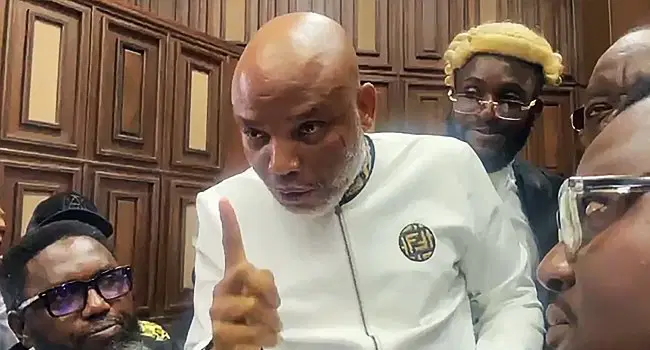has refused to open his defense in the seven-count terrorism charge brought against him by the Federal Government. Kanu, who is representing himself after dismissing his legal team, insists that there is no valid charge against him and therefore sees no need to defend himself.
The Federal Government had accused Kanu of leading a separatist movement that called for the secession of the South-Eastern part of the country. He was further accused of inciting violence and killings through broadcasts that were heard in various parts of the country. Kanu has pleaded not guilty to the charge.
At the resumed proceedings, Kanu told the court that he would not enter any defense because there was no valid charge pending against him. He cited Section 36(12) of the 1999 Constitution, arguing that there was no written law on terrorism offenses in Nigeria, and therefore, nothing to defend.
Justice James Omotosho, however, ruled that a prima facie case had been established against Kanu and that he must now either proceed with his defense or have judgment delivered based on the prosecution’s evidence. The judge adjourned the case until November 5, giving Kanu the opportunity to open his defense or waive his right to do so.
If Kanu faio open his defense, the court may proceed to judgment based on the prosecution’s evidence. Kanu’s decision to defend himself has raised concerns about his ability to navigate the complex legal proceedings.
The court has given Kanu a final chance to defend himself against the terrorism charges. Kanu’s refusal to mount a defense risks shutting down his case, potentially accelerating a verdict. The outcome of this case will have significant implications for Kanu’s future and the IPOB movement